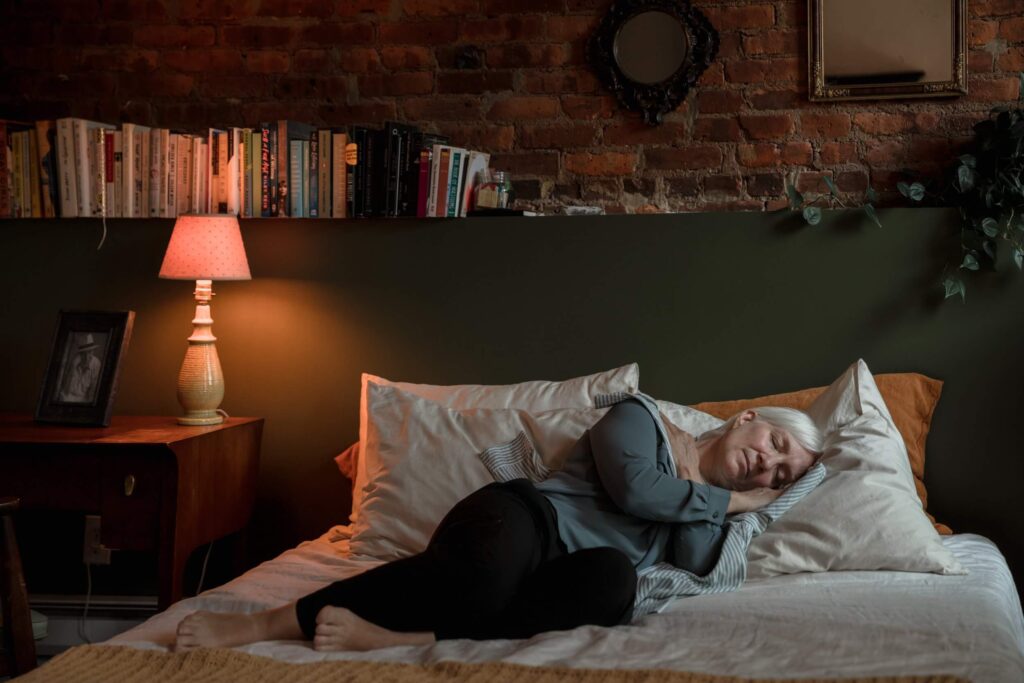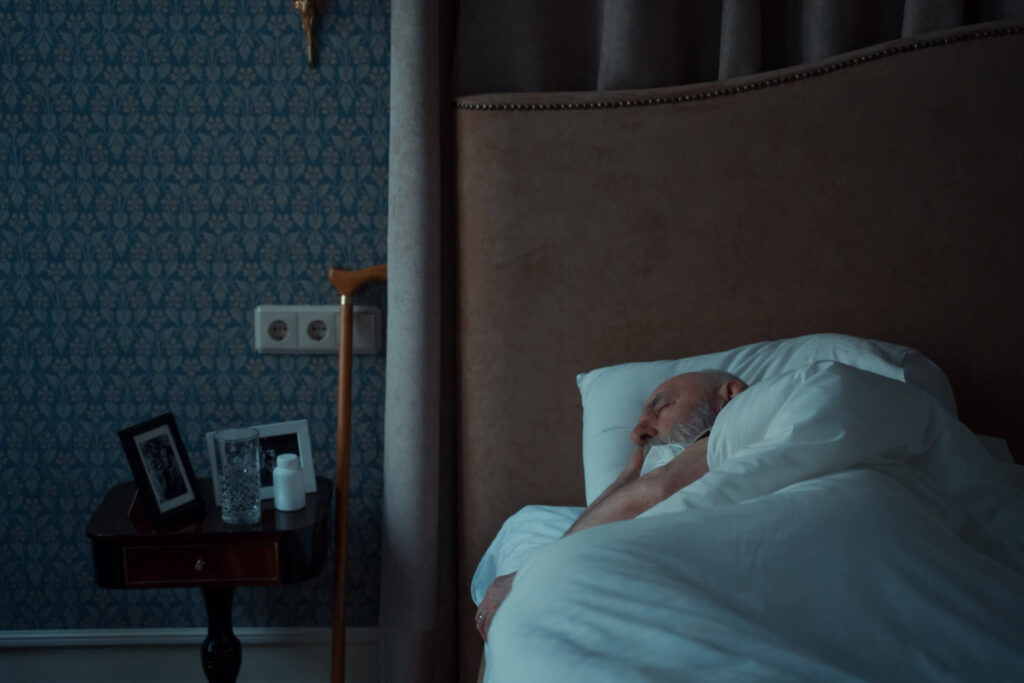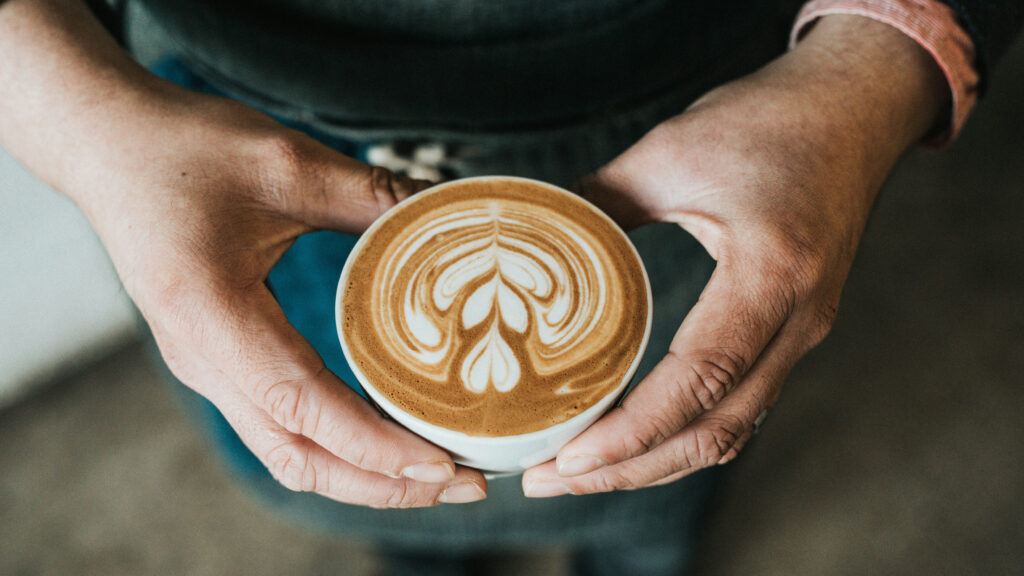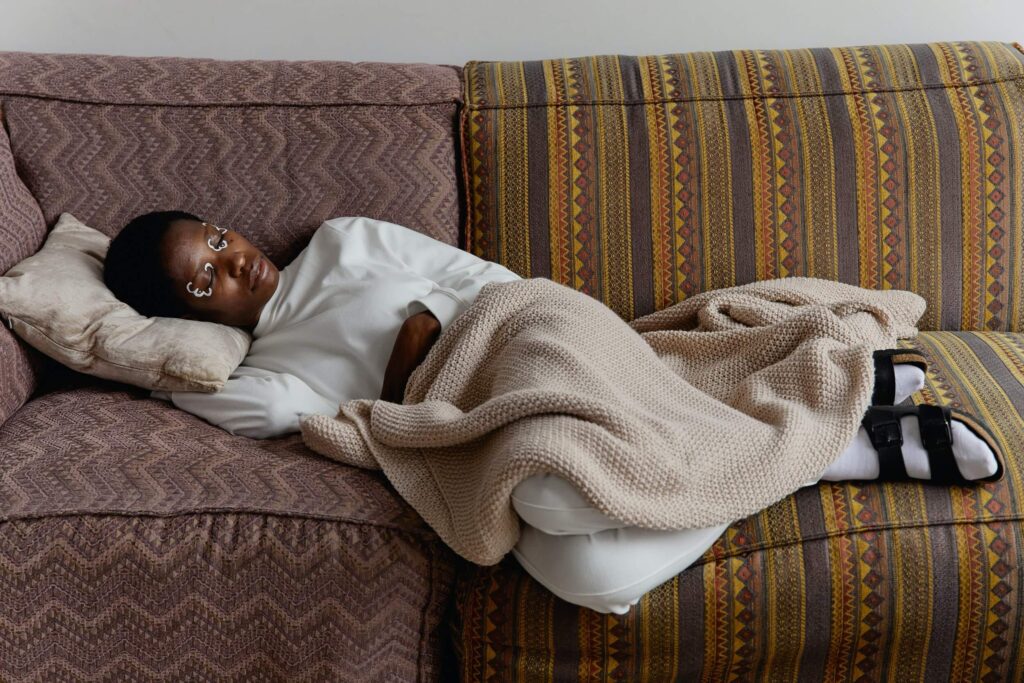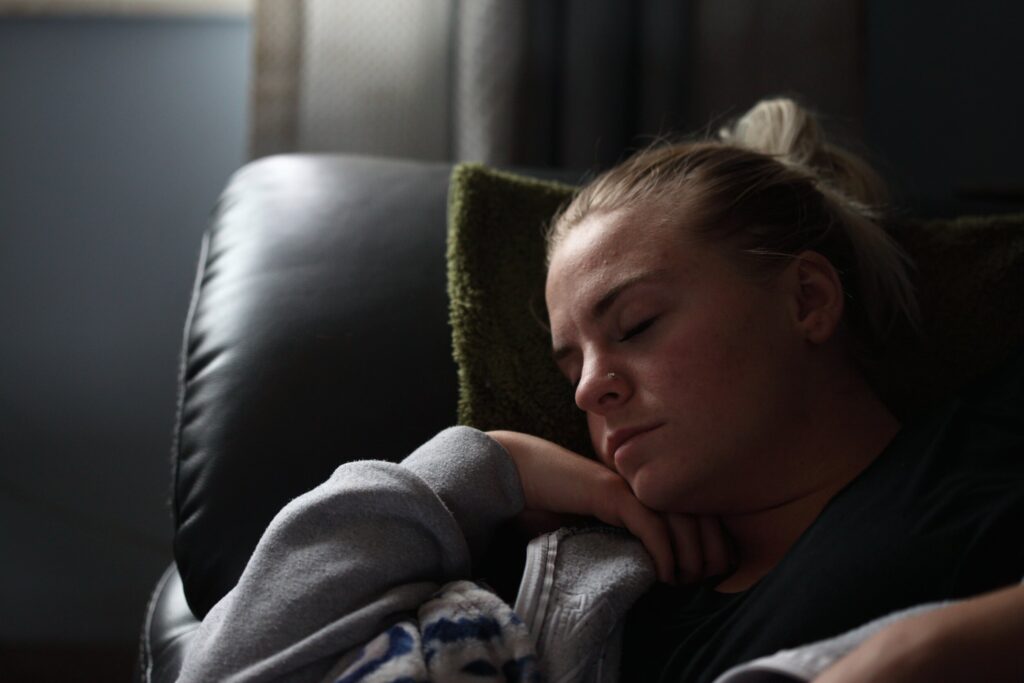Sarah is a project lead at a startup. During the pandemic, managing a team across the world has proved demanding; she has gone to sleep and woken up at odd times. She’s juggling her work alongside homeschooling two children on zoom classes. She feels like she hasn’t slept in a week. When she does sleep, she wakes up in the middle of the night, her thoughts running anxiously, cycling through laundry lists and to-do lists, and difficult conversations with co-workers and her husband. She wakes up in the morning, feel unrefreshed. Over time, she notices that her skin starts to look pale and dry. She feels sluggish. She is far more irritable than usual, she’s already had a fight with her husband, and snapped at the kids. Conflicts at work are escalating. She’s had a chronic stomach ache for the last week, and that’s not helping matters either. She’s put on weight as well in the last week, and can’t figure out where it’s come from. She doesn’t have the energy for a workout, which would help her clear her mind and give her space. She feels weighed down, and looking at the list of her difficulties, her heart sinks. How can she tackle all of this?
Do you feel like Sarah? There is a one-stop, one-word solution to all of her difficulties.
Sleep.
It’s surprising how often we don’t realize the simple power of what sleep can do.
Sleep fights anxiety
Like Sarah, you’ve no doubt noticed that a bad night’s sleep, tossing and turning, impacts your mood the next day. You’re not alone. A lack of sleep results in more irritability, frustration, anger and sadness — all the negative emotions, and a corresponding decrease in positive emotions. Bad sleep can result in, or be a consequence of mood disorders and also impacts blood glucose levels such as depression and anxiety. Sleep plays a key role in emotional regulation.
The results of more sleep? Sarah, after a good night’s sleep, is more pleasant and better able to reign her negative emotions. She gets along better with people.
In short, sleep for peace, and to be a better person.
Sleep is essential for your memory
There are three kinds of activities involved in making memories: acquisition, consolidation and recall. Acquisition happens when you’re awake, doing the things that help you make memories — watching a child walk for the first time, revising for an exam, and so on. Recall, too, happens when you’re awake. But consolidation — when the brain reviews and processes memories — happens when you’re asleep, in the hippocampus and neocortex. These memories become stable when you dream, while asleep. This results in the ability to think more clearly, remember better, and be more productive and function better at school and office.
So yes, sleep can make you smarter.
Sleep better for good health
Sarah’s tendency to catch colds is linked to her lack of sleep. Not sleeping enough decimates the immune system — and leads, over time, to an increased risk of cancer. A lack of sleep is also shown to be a factor in developing Alzhiemer’s, diabetes, cardiovascular disease, congestive heart failure and strokes. And in times of a pandemic, it’s essential to get enough sleep so your body can fight off germs.
The easiest way for Sarah to safeguard her health? Simple. Just sleep.
Sleep off the belly fat
It turns out that Sarah’s weight gain is caused by not sleeping enough. Sleeping four hours or less impacts the hunger hormones grehlin and leptin, increasing hunger, and leads Sarah to snack on calorie-rich foods and carbohydrates. And it’s been proven, by studies, that a lack of sleep can lead to obesity, not just in adults, but in children and adolescents as well.
So, it’s true that sleeping can actually help you lose weight. Could there be an easier way to lose weight? Probably not.
Sleep makes you beautiful
Don’t believe this? It’s true! While you sleep, your skin manufactures collagen, which makes the skin plumper, and reduces wrinkles and sagging. While you sleep, blood flow to the skin increases, leading to a better, glowing complexion, and reduces those puffy eyes. Even sleeping just two hours less a night can dry out your skin, and lead to double the number of fine lines, and lead to an ashen, haggard complexion.
Guess that’s why they call it beauty sleep.
Sleep makes you stronger
Yes, a good night’s sleep is essential to being able to perform well at endurance sports such as running, swimming and biking. During your sleep your body can repair itself, by building and repairing muscles. Sleep also boosts your energy levels, by increasing levels of ATP in the brain, which is essential to becoming stronger and performing better at these sports. Plus, you’ll be less fatigued after a good night’s sleep, and are more likely to sustain a daily workout regimen, that will deliver huge benefits to boosting mood, health, weight loss performance and so on.
A regime of an optimum eight hours a night can do wonders for Sarah and you — helping her achieve an emotional balance through juggling her difficult day and it’s challenges, improving her memory and sharpening her mind so that she performs better at work, giving her the energy boost needed for her daily workout routine and helping her muscles repair, as well as making her look better by rejuvenating her skin and helping her lose weight. She’s able to fight off flus and infections, and her strength increases. She also looks younger than she ever did before — and that’s a plus! Trust us!
The benefits of sleep just keep doubling, and accumulate over time in making a stronger, better, smarter, healthier you.
So go on, get on to the Ultrahuman app, listen to our Bedtime Stories and prioritise your sleep.




